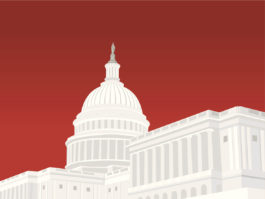Update: The House of Representatives voted to approve the Senate bill on Thursday, April 23. It will now go to President Trump, who is expected to sign it.
This article was originally published on Wednesday, April 22, 2020
The Senate passed its version of an amendment to the CARES Act last night. The purpose of the bill was to increase amounts appropriated to the Paycheck Protection Program (PPP), the economic injury disaster loans (EIDL) program and the EIDL emergency grants program. The bill also funds hospital and provider recovery and testing and a few other programs, like an expanded budget for the SBA. Here are the highlights for the various business provisions:
- PPP lending limit increased $310 Billion from $349 Billion to $659 Billion
- EIDL grants available to the SBA increased from $10 Billion to $20 Billion
- Expanded eligibility for PPP loans and the EIDL grant programs to include farms
- Increased the amount appropriated to the EIDL loan program by $50 Billion (this is in addition to the extra $10 Billion for grants)
A breakdown of the amounts allocated to the various healthcare programs is as follows:
- $75 Billion allocated to healthcare professionals fighting the spread of COVID-19
- $25 Billion to expand the development of testing for COVID-19
- $11 Billion allocated to states to help fund the costs associated with testing for COVID-19
- $4.25 Billion allocated to states to assist with the fight against COVID-19 based on the proportionate number of COVID-19 casis in that state
- $750 Million allocated to supporting health initiatives of Indian tribes
- $5.43 Billion to various other health related agencies for the purpose of fighting COVID-19 and testing for COVID-19
The total bill is valued at approximately $500 Billion.
The bill now goes to Congress where they will vote on it, provided they have enough representatives in Washington to have a quorum.
The President indicated he will sign the bill once it gets to his desk.
We are committed to keeping our clients and community up-to-date on legislative changes. We welcome you to contact us for additional information, or with questions on this legislation or any COVID-19 related financial matters.
by Barton Haag, CPA





